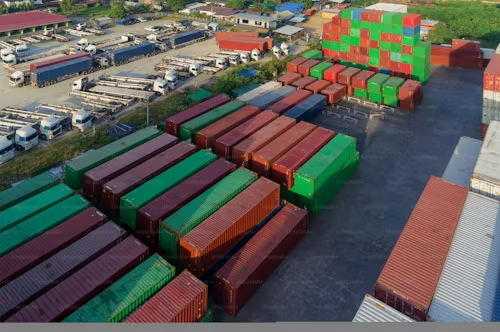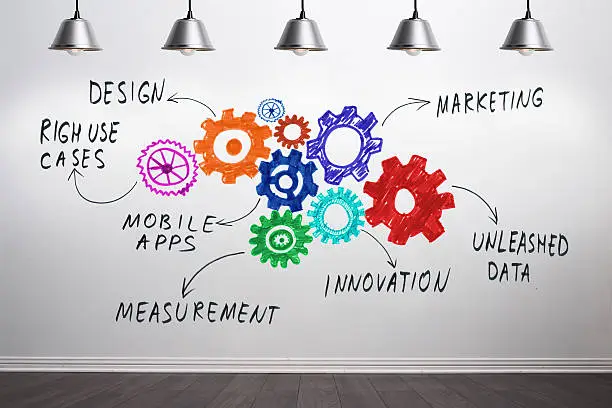One of the EU member nations with the quickest economic development is the Republic of Latvia. In 2022, the nation transported products worth $22.5 billion throughout the globe. Due to its EU membership, Latvia has access to a market with more than 450 million customers. The ability to offer products and services freely throughout the EU without paying customs fees or confronting other trade restrictions is an enormous potential for Latvian exporters. The following leading industries offer Latvian exporters opportunities in international trade:

Wood
Latvia has bountiful backwoods assets, with a solid lumber industry known for excellent hardwood and softwood production. Major exports include wood furniture, pressed wood, wood pellets, and sawn lumber, with the EU, including Germany, Sweden, the UK, and Denmark, as essential business targets. Moreover, there are likely business markets in Asia driven by rapid economic development and urbanization, where interest in lumber and wood-based items is expanding.
Electrical equipment
Producing and exporting a variety of electrical devices, equipment, and components presents prospects for Latvian exporters in the electrical machinery and equipment industry. Electric motors, generators, transformers, switches, and control panels may fall under this category. The EU market continues to be the major market for these exports, but Latvian businesses should also look into prospects in nearby nations and areas with expanding industrial sectors.
Computer hardware
Latvia may export a variety of equipment, including machine tools, industrial machinery, and computer hardware, much like the electrical machinery industry. The country’s capacity to create high-quality equipment at reasonable pricing will have a significant impact on its export potential in this industry. Such equipment is often imported by Germany and other EU nations, therefore Latvian exporters may pursue these markets.
Cereals
Latvia can produce a variety of cereals, including wheat, barley, rye, and oats, because of its extensive agricultural acreage. Cereals from Latvia have privileged access to the European market as an EU member. Cereals may also be exported to nations outside the EU, notably to those that are close by in Eastern Europe and the Baltic States. To stay competitive in the worldwide cereal market, exporters should think about adhering to international requirements for food safety and concentrate on quality.
Vehicles
Vehicle exports to other EU nations, notably buses, and trucks, may be profitable for Latvian auto exporters. Although Latvia’s automotive sector is relatively modest, certain producers create commercial vehicles for both the local and international markets. A larger export market may become accessible through increasing production capacity and competitiveness.
Items made of steel or iron
With a thriving metalworking sector, Latvia can export a wide range of iron and steel products, including home goods, tools, and metal constructions. Latvian exporters should look into prospects in nearby nations and other areas where there is a market for metal goods.
Beverages
The alcohol business in Latvia is expanding, especially in the vodka and other spirits sectors. There is export potential both inside the EU and outside of it, where there is a market for premium spirits. Traditional alcoholic drinks from Latvia, notably Riga Black Balsam, have grown in popularity overseas, opening up more prospects for export in the beverage industry.
Pharmaceuticals
Though still relatively tiny, Latvia’s pharmaceutical industry has been rapidly expanding. Pharmaceutical firms in Latvia can export drugs and pharmaceutical goods to other EU nations and abroad. Latvian exporters should concentrate on product quality, regulatory and standard compliance, and research and development to compete in this cutthroat business.
Furniture
High-quality wooden furniture is traditionally produced by Latvian furniture producers. This industry may benefit from the need for distinctive, beautifully made furniture and home décor items. In addition to the EU market, Latvian exporters may go after other markets including North America and Asia that have a taste for European-style furniture. Additionally, Latvia might look at the potential for exporting lighting and prefabricated structures.
Information technology and services
The IT industry in Latvia is well-established, and its enterprises may export software, IT services, and technological solutions to other countries.
Renewable energy sources
Latvia has achieved advances in the development of renewable energy sources. Exporters in the renewable energy industry may assist nations seeking to make the transition to green energy by offering technology and knowledge.
You can also find these articles helpful
Solopreneur business ideas
Green technology market overview in Latvia
Information and Communications Technology market overview in Latvia







